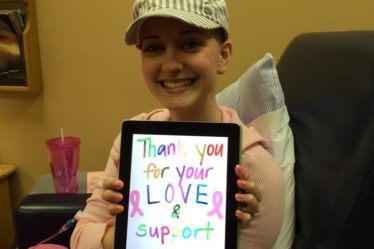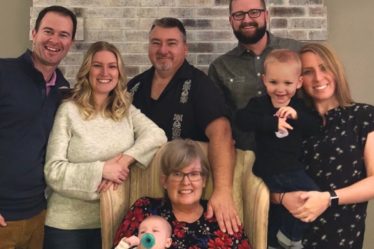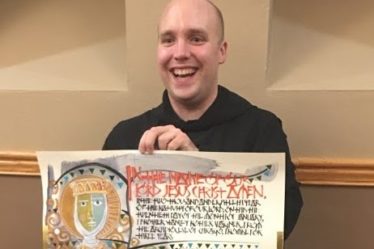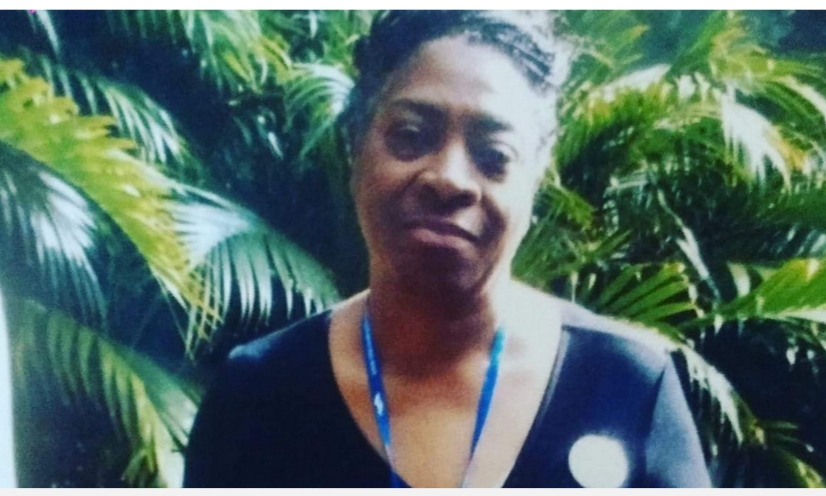
An Interview with an ovarian cancer caregiver
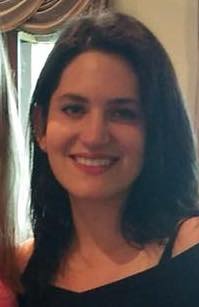
By Jenna Lindman
Kandis Draw is a Chicago Native and a caregiver for her mother who passed of ovarian cancer five years ago. She works at Vitality Group downtown and is involved with many philanthropic organizations in Chicago. As well as being featured for IgniteHope, Kandis has also been featured in Cancer Wellness Magazine and Curvicality Magazine. I’d like to give Kandis a big thank you for sharing her story with us.
Tell me a little about you?
I am from Chicago, born and raised here. I love nonprofit charity work. I am on the Gilda’s Club Chicago Associate Board, and I am also on the AIDS Foundation of Chicago Associate Board; two organizations that I’m passionate about. I do a lot of volunteer work in the community, more specifically for people with cancer and people that are battling AIDS. I lost my mother to cancer and I lost my good friend to AIDS. I think it’s important to tell stories about what caregivers go through because I think that they are the unsung heroes.
I agree. We recently launched a candle class at Gilda’s Club. It’s a great foundation. You are very involved in charity groups, that is great. Would you tell me a little about your mom? When was she diagnosed?
She was diagnosed on November 26th, 2011. She was diagnosed at Jackson Park Hospital. She started having these bad stomach pains and bad gas. I rushed her to the ER because the pain got so bad.
Did they diagnose her right away?
Yes, they took her to the scans and that’s when they saw [the cancer].
Did you know right away that you would be her caregiver?
Yes, I did. I had just [been] laid off at the time and I did not want her to go into a home. My two younger siblings were very young, like ten or eleven when she got diagnosed. I wasn’t working at the time and I just felt like this was a better thing to do. It’s better if a family member takes care of a loved one as opposed to a nursing home. I didn’t want to go through all of that and that’s what made me decide.
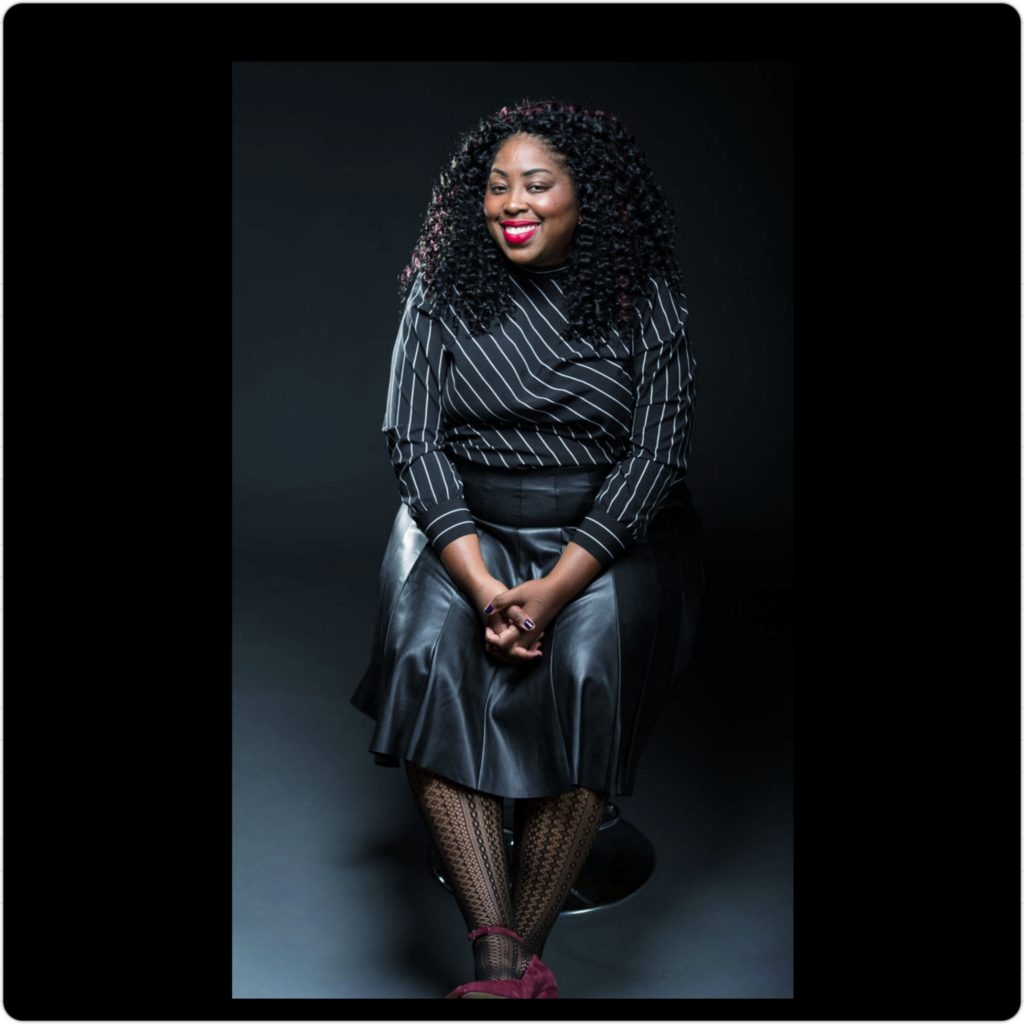
Did you have other support from family members and friends?
My dad. He worked. My parents were married. He was there but he worked during the day, so the majority of the work was on me. And it wasn’t just [taking care of] her, it was my siblings as well – school, making sure they ate. Eventually my mom had gotten to a point where she couldn’t drive, so it was them plus her.
As a caregiver, what else was expected of you and what were you responsible for?
I was responsible for getting her up, taking her to her doctor’s appointments, making sure she ate, helping her bathe, any medication she was taking, and then there were the other parts of that. The long nights when she woke up at three o’clock in the morning and I had to get up too. Those moments were the ones that were really difficult.
What were some of the emotions through the process?
I was determined but I was angry and exhausted to try to push through. I was just grateful for a good day. If there was a good day, I was happy. If it was a bad day it was fatigue and [I was] overwhelmed.
When you were in those moments that were a little more difficult, did you have a mantra or coping skill that helped you through it?
I went to church a lot, that helped me. I also had a good support circle from friends and people that really helped me. I can say that the motivation of not wanting your mom to die was enough for me to keep going.
What would you say is the toughest challenge you faced?
Hearing her in pain. Not being able to do anything except for what the doctors say; that was one of the toughest things because for the most part she would be okay, but here were those moments she would be in so much pain it was unbearable. She had a procedure at Cancer Treatment Centers of America and one particular procedure had some bad side effects, so I ended up rushing her to the ER and it was just an unbelievable amount of pain.
That’s terrible to see the ones you love hurting so bad. I think that sometimes caregivers can experience meanness from the person you are caring for. Was your mom ever hard on you?
Yes, she was. She was extremely hard on me. She was very stubborn and, on the days when it was bad, her attitude was [tough]. She was emotional and angry, and she took out a lot of her frustrations on me. Which made it difficult for me because here I am helping you, and you’ve got an attitude. It’s hard.
When you guys were both going through it, were there resources that you utilized or support groups that were helpful for your mom?
No, because we didn’t know about Gilda’s Club or other things that were available. I will say that when we went to Cancer Treatment Centers of America. I went to a support group pretty much every day and that really helped.
Would you recommend that to other caregivers as well?
I would recommend taking time for self-care, going to therapy which I did shortly after she passed. I would recommend enlisting help from other family members.
When your mom was not feeling well, is there anything you found that made her feel better?
She really liked movies, when she was up for it, we would go to the movies. That really helped her. What also helped her was listening to certain artists and people coming to visit. She loved nature, so sitting outside [also helped].
I think that caregivers don’t always express or share when things are tough for them because they don’t want to seem like they are complaining like the person they are taking care of. I think it’s important to highlight some of those feelings. I wonder, was there ever a time you felt like giving up?
Several times. Sometimes the stress on me was so bad that I would just get in the car and drive because I was that angry. There were other times where at the end of the day I would lie in bed and call a friend. My friend told me about how some nights there were times I wasn’t making any sense, that’s how stressed out I was. I can tell you that as a caregiver you feel like, “I’m taking time out of my life to stay here and help you.” Sometimes it can come across that they’re not grateful, that they’re not happy. My mother was that type [sometimes]. On the days that she was wrong, she wouldn’t apologize right away; it was hard for her to say, “I’m sorry” but she would just grab me and hug me, that was her way of saying I’m sorry. There were other times right before she passed that she did a lot of apologizing. A lot of saying, “I was wrong about how I was, I’m sorry for this, but I’m proud of the woman that you are, I’m proud of what I raised.” That’s all I wanted to hear, and once I heard that, I was all good. Being a caregiver is [being] an unsung hero. You don’t always get the credit right away. It can take a long time to recover from the stress. There is even a financial downside. A lot of people have to work a 40-hour week and then come home and take care of their parents, some people can can’t do that. Some people must hire other people to help. Those three years I took care of my mother I put on fifty pounds. So, it’s a lot, the stress.
I think that a lot of caregivers notice that people they were close to before suddenly withdraw from their lives. Did you experience any of that?
Yes, I did. But there were also some [people] who were very supportive of me and let me know that they were there for me. I had a hard time leaning on people because that’s just not how I am. What I learned is that it’s okay so say, “I’m not okay,” and, “Hey, I need help.” Then I was more inclined to reach out to do so.
On the flip side of the heavy stuff, were there moments that brought you closer to your mom where maybe you felt you got to know this woman better than anyone else?
Yes, yes. When we went through those tough moments, when she started having a moment where she was not doing so well, I would say to her, “Okay mom, you gotta keep up! You were hard on me, I’m gonna be hard on you, you’re falling behind!” she would laugh, and she would say, “Okay, you’re right!” I saw a side of her that she didn’t show much of, but I can tell you that [our time] at Cancer Treatment Centers of America was the time that we bonded, it’s an outstanding facility. Being with the chaplain there, my mom crying across the table and me grabbing her hand and saying, “It’s okay mom, you’ll get through it,” that was something. Those moments where I held her hand and said, “Mom, I’m not leaving you, I’m here, Mom.” Or her leaning on me with her head on my shoulder on the shuttle to Cancer Treatment Center of America, moments like that. When we got back from [Cancer Treatment Centers of America] she passed two weeks later.

I’m glad you had those moments. What would you say you’re the proudest of in your role as a caregiver?
I’m glad that I stuck it out. It’s not easy to do, but I’m glad I stuck it out and had those moments that I cherish so deeply.
If you were to be a caregiver again is there anything you’d do differently?
I would reach out more for help. If I had known there were so many different organizations dedicated to helping people with cancer that I would have made it my business to go to some support groups. I would have gone to therapy during that time. The one thing that did help me during that time was keeping a journal. I would say that seeking help and going to support groups, to know that there are other people like you. I think that we heal in community, to know that there is someone else who has been where you are.
What you said about reaching out for help more is something that I hear echo through the caregiver community. Sometimes it seems that these cancer resource groups aren’t very present when people are going through it. Do you think there is a way these cancer organizations can more effectively make themselves known?
Yeah, I think that awareness and having more ambassadors to service underrepresented communities, because that’s where I think it’s needed a lot. I think that going to churches even if a person isn’t really religious. But I think that when it comes to being a caregiver you’re embarrassed to open up.
How do you think caregivers can be more vulnerable?
For me, you need to be around people who are going through a similar situation, and that’s how you draw strength from each other knowing you’re not by yourself. If I’m in a group of people I’m just not going to come out and say stuff, but if I know this group is specifically for [support] that I’m more inclined to do so. And the confidentiality is important.
Your mom passed in 2014, are there still challenges you face now in either coping with your experience or dealing with your mom not being here anymore.
I do cope a lot. Raising my brother and sister after that was difficult for me. After she passed away the grief was terrible for me for a long time. That’s when I reached out and started going to therapy and that helped me tremendously. After she died, I still had to look after my siblings. They were very young, they were 8 and 13. There are five [siblings] all together but I’m the one that was here; my father was here but he was working at the time. It was a lot for me; but the more that I went to therapy and support groups, the more I got back to myself and the better I felt.
For caregivers it just takes time and I think that you must give yourself time to heal. I had bad nightmares when she passed of her screaming down the hall. Some things about caregiving can be very traumatic. But healing takes time and it takes effort. You have to put in the work, but you can get there if you try. I miss my mother a lot. Mother’s Days were hard for me, birthdays after she passed were difficult. For a while I didn’t want to celebrate them and I didn’t want anyone to talk to me – I was that bad. But now I celebrate. I’ve grown in the process of healing.
What do you do to honor your mother now?
Now I joined the Ovarian Cancer Coalition. My siblings and I will sometimes go to her favorite restaurant for her birthday. We sit around and talk about funny memories that we had. I do the cancer remembrance walk every year and the Ovarian Cancer Walk. Northwestern has a Remembrance Walk for survivors and people who have passed, and we write her name on the wall. I do a lot for the Ovarian Cancer Coalition. We do a tree lighting, there were ornaments made in my mother’s memory that I hang every year at Brookfield Zoo.
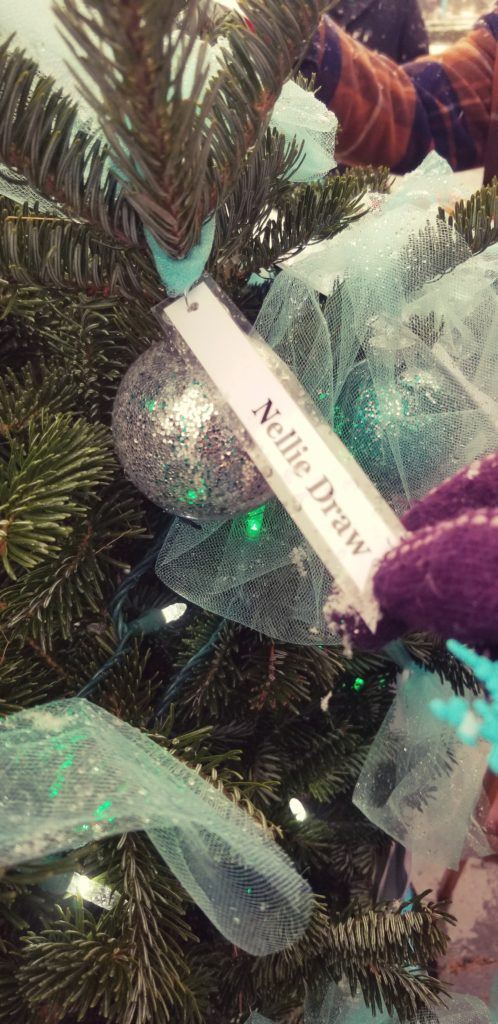
I think it’s wonderful you do that; I think it’s important for coping as well. I have heard a lot of caregivers talk about their experience of having guilt after someone passing, or even when someone survives. Did you experience any of that?
I experience guilt because sometimes I think about what I could have done differently. I think is there something I could have done, could have said. Those thoughts go through your mind.
For someone else experiencing those thoughts, what would you recommend?
If you did everything you could, just rest in that. Know you did the best you could.
If a friend of yours was going to care give for their loved one, what is the one thing you would want them to know?
I would say to them to remember to take breaks. Find some type of outlet whether its spiritual or going to therapy. Find a place where you can chill and decompress. I also recommend support groups and getting people in your corner you can trust that you can just vent to without judgement. It’s so important to have someone listen to you during the hard times.
Thank you so much for being authentic in sharing all this, it’s a scary role to be so honest in because you don’t want to face judgment or misunderstand when you are venting. Is there anything else that you’d really like us to know about you?
It’s a calling of mine and when you focus on service, other amazing doors open for you. I want people to know that my mother was a person that was very strong, and I get a lot of strength from her. I definitely get strength from her. I am still healing, and it’s been a good journey for me.

